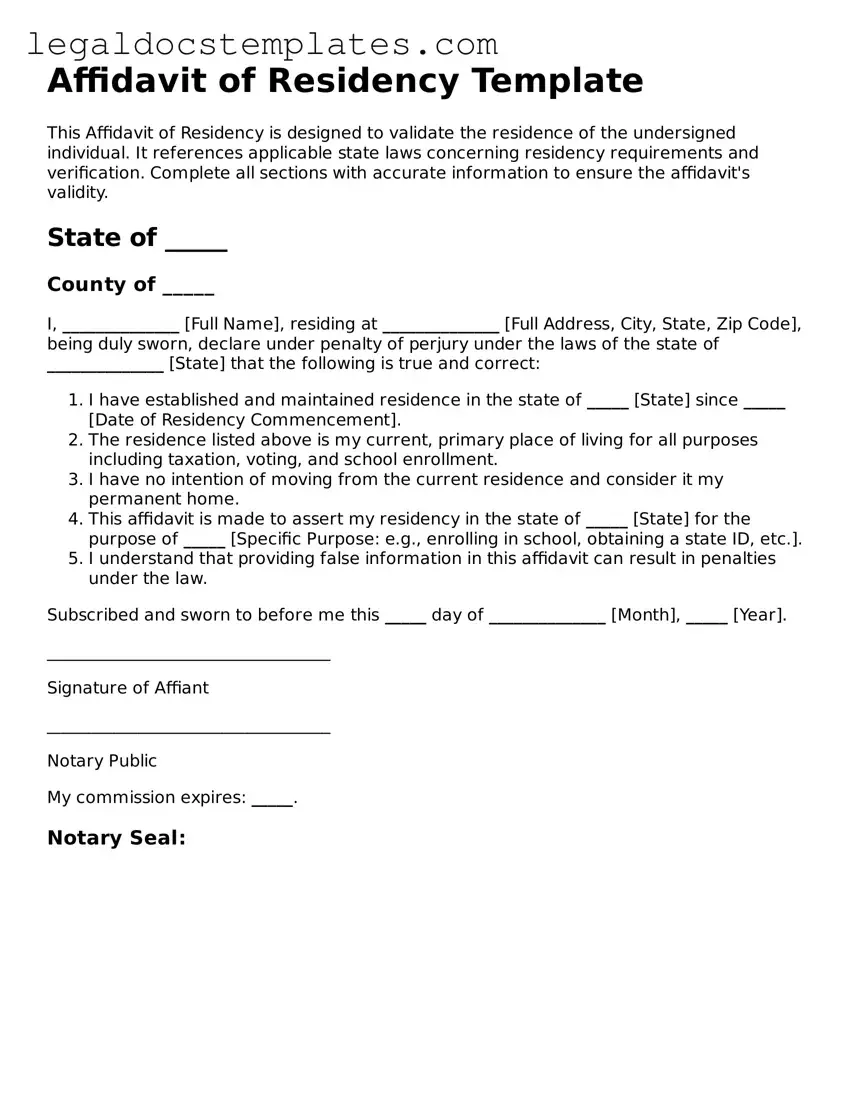An Affidavit of Residency form is a legal document used to verify a person's place of residence. Similar to this, a Lease Agreement also serves as proof of residence, albeit in a different context. A Lease Agreement is a contract between a landlord and a tenant, outlining the terms under which the tenant agrees to rent residential property. This document is often used to establish residency when enrolling children in school or applying for a state ID or driver’s license, just like an Affidavit of Residency.
Another document akin to an Affidavit of Residency is a Utility Bill. Utility bills, such as those for electricity, water, or gas, are commonly used to verify a person's address. Although they are not sworn statements, they provide tangible proof of where someone lives and are frequently accepted by government and financial entities as a form of address verification, much like the affidavit accomplishes through sworn testimony.
The Voter Registration Form is also similar to an Affidavit of Residency in its function of establishing one's place of residence. When registering to vote, individuals must provide their current address to ensure they are voting in the correct district. This aspect of the registration process uses the individual's declaration of residence, thereby aligning with the affidavit's purpose of verifying residence for legal and civic engagement purposes.
The Driver’s License or State ID application process shares commonalities with the Affidavit of Residency, as applicants must prove their current address to obtain these forms of identification. Through providing documents that establish residency, individuals validate their address in the eyes of the state. The affidavit serves a similar purpose, offering a sworn statement to verify an individual’s living situation.
Mortgage Applications also resemble the Affidavit of Residency, as these require proof of address among numerous other personal details and financial information. In applying for a mortgage, the applicant must substantiate their place of residence, often through various means including similar legal documentation, to satisfy the lender's need to know the applicant's stable residential history and current living arrangement.
Similarly, a School Enrollment Form demands proof of residency within a certain catchment area. Parents or guardians must often provide documentation such as an Affidavit of Residency to prove that the child lives within the boundaries of the school district. This ensures that students are attending schools in their legitimate local areas, using residence verification as a key criterion.
Last but not least, the Car Registration process mirrors the need for an Affidavit of Residency through its requirement for proof of a current address. The state needs to know a vehicle owner’s place of residence for tax, legal, and emergency-contact purposes. Here, as with the affidavit, documentation must be provided to verify where the individual resides, ensuring their vehicle is registered under the correct jurisdiction.

